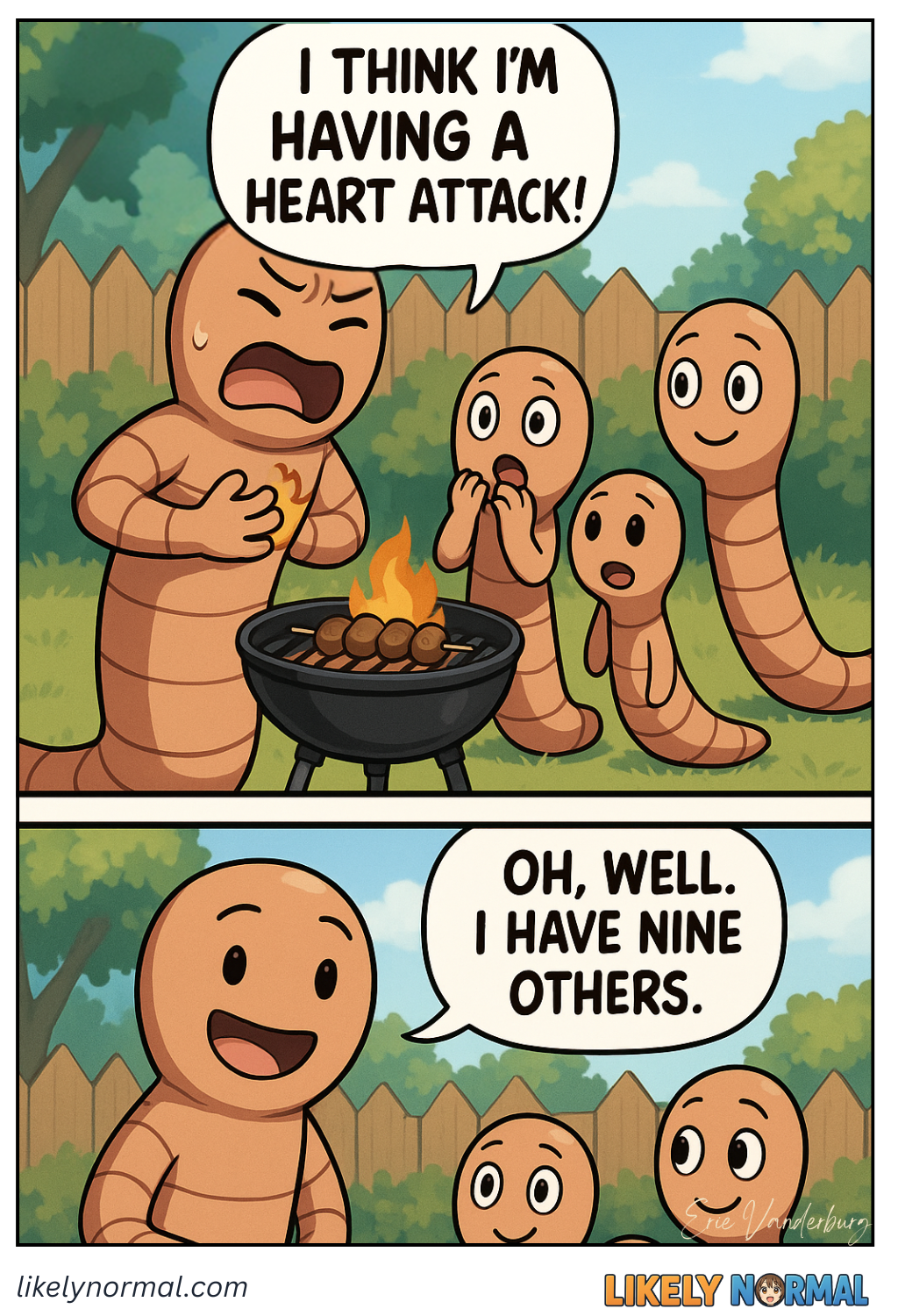Worm Heart Attack
There’s something dangerously comforting about having a backup plan. That second kidney? A spare tire in the trunk? The emergency $20 bill you keep in your phone case? They all whisper the same seductive lie: “Go ahead, live dangerously—I’ve got your back.” And so we do, with all the wisdom of a moth flying straight into a flame because technically it could survive with just one wing.
Take technology, for example. Cloud storage was supposed to be our digital safety net, but instead it turned us into document-hoarding dragons who never hit “save.” Why bother? The cloud never forgets! Until, of course, it does—usually right before a deadline, leaving you sobbing over a corrupted file named “FINALfinal_revisedactual (2).docx.” Auto-correct suffers a similar fate: it started as a helpful guardian against typos, but now we confidently mash keys like toddlers playing piano, trusting it to translate our gibberish. This is how you end up texting your boss that you’re “feeling very constipated today” when you meant “very concentrated.” Thanks, backup brain.
Even nature’s redundancies backfire. Worms with their ten hearts probably spend their days doing worm parkour, thinking “What’s the worst that could happen?” Humans with their “extra” kidneys (read: black market bargaining chips) might skip water for a week because, hey, dialysis is technically an option. And let’s not forget the classic “I don’t need a coat—my car has heating!” philosophy, which works beautifully until your car breaks down and you’re left shivering in a parking lot, questioning all your life choices.
The cruel irony? Backups have backups, and they all fail at once. Your primary credit card declines, the backup card is expired, and suddenly you’re bartering with the barista: “I’ll Venmo you tomorrow—or I can recite all the lyrics to ‘Baby Shark’ as compensation?” That emergency snack in your bag? Stale from 2019. The extra phone charger? Chewed by the dog you forgot to feed because you were too busy relying on your “automated” pet feeder (which jammed).
In the end, redundancies don’t eliminate risk—they just give us permission to take bigger risks. So maybe we should all live a little less like we’ve got spare organs and a little more like we’re one typo away from career ruin. Or not. After all, what’s the worst that could happen? (Don’t answer that.)

Discussion ¬